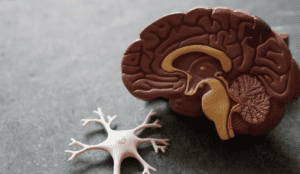Electromagnetic Radiation and Sleep Disruption
How It Affects Your Brain and What You Can Do About It
“I can’t sleep”. “I probably have insomnia”. “I don’t get why I’m constantly tired”. 35% of Americans are sleep deprived, resting for less than 7 hours a night. Almost half of them feel sleepy or sluggish during the day. It can be argued this lack of sleep might be affecting our energy levels – and the sharpness of our cognitive functions – and your phone might have something to do with it.
How? Through emitting Electromagnetic fields (EMFs). EMFs are a type of energy emitted by electronic devices such as phones, Wi-Fi routers, and laptops. Exposure to EMR has been linked to various health issues, including sleep disruption. As we’ve explored before, sleep is essential to your mental well-being, physical health, and ability to function and it’s critical to understand the connection – and you probably know that, but it’s important for you to protect and prioritize it.
Prolonged exposure to EMFs can affect your brain in several ways, including disrupting your circadian rhythm, reducing melatonin production, and increasing cortisol levels. Your circadian rhythm is your body’s natural 24-hour cycle that regulates sleep and wakefulness. Exposure can interfere with this rhythm, making it harder for you to fall asleep and stay asleep.
Melatonin is a hormone produced by the pineal gland in the brain that helps regulate sleep. EMR can reduce the production of melatonin, making it more difficult to fall asleep and stay asleep. This can lead to sleep deprivation and various health issues, including decreased cognitive function, increased risk of accidents, and mood disorders. Cortisol is a hormone produced by the adrenal gland that is associated with stress. Exposure to EMFs can increase cortisol levels, making it harder for you to relax and fall asleep. It’s also the hormone that controls your stress reaction – so increased cortisol levels make you more reactive and more prone to stress, meaning you can’t relax, let alone sleep!!
What You Can Do About It
There are several steps you can take to reduce your exposure to EMFs and minimize its effects on your sleep:
- Use a blue light filter: Blue light is a type of light emitted by electronic devices that can disrupt your circadian rhythm. Many devices now have a built-in blue light filter that can reduce the amount of blue light emitted.
- Use a radiation shield: Radiation shields can reduce the amount of EMR absorbed by your body. There are many different types of radiation shields available for cell phones, laptops, and other electronic devices. AiresTech provides excellent state-of-the-art protection that you can attach to whichever devices you use most.
- Keep electronic devices out of your bedroom: Keep electronic devices such as cell phones, tablets, and laptops out of your bedroom. This can help reduce your exposure to EMFs and create a more sleep-friendly environment.
- Turn off electronic devices before bed: Turn off electronic devices at least an hour before bedtime. This can help reduce your exposure to EMFs and give your brain time to relax before you go to sleep. You can try reading a book to calm your mind as well.
- Use an analog alarm clock: Use an analog alarm clock instead of your cell phone to wake up in the morning. This can help reduce your exposure to EMFs and create a more relaxing morning routine.
Exposure to EMFs can disrupt your sleep and have a range of negative health effects. By taking steps to reduce your exposure to EMFs sooner than later, you can help protect your brain and improve your sleep. As we continue to learn more about the effects of EMFs on the brain, it is important to take proactive steps to minimize exposure and promote healthy sleep habits.






